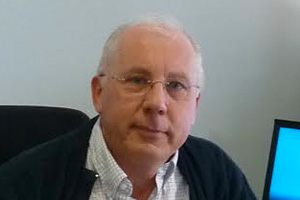# Prof. Pablo Ballester's course in the Jyväskylä Summer School 12.-16.8.2019
# NANO2/CH4: Methods for the Characterization of Supramolecular Complexes (opens new window)
NANO2 course at 29th Jyväskylä Summer School (opens new window) attracted 22 students from near and far. Thank you for all the participants!
# Course details
NANO2/CH4: Methods for the Characterization of Supramolecular Complexes
Time: 12.-16.8.2019 (10 x 45 min lectures + 10 x 45 min practical sessions)
Participants: Course is aimed at all levels (Master/PhD/postdocs)
Lecturer(s): Prof. Pablo Ballester
Coordinator(s): Kaisa Helttunen
Code: NANS7004
Modes of study: Lectures and practical sessions, and assigned homework (80 %).
Credits: 2 ECTS
Evaluation: Pass/fail
# Contents
Practical aspects for characterization of intermolecular interactions in supramolecular complexes using spectroscopic techniques and isothermal titration calorimetry. The topics include geometrical characterization of complex structures (mainly NMR experiments), thermodynamic characterization (spectroscopic titrations and isothermal titration calorimetry), and kinetic characterizarion (fast and slow exchange binding processes on the NMR timescales, EXSY, complete bandshape analysis). During practical sessions example data is processed and analysed using freely available software, therefore, bringing your own laptop is recommended. Participants are invited to bring their own samples or data for measurement and analysis during practical sessions (optional).
# Learning outcomes
The student will learn basic concepts of supramolecular binding and the structural characterization of supramolecular complexes in solution. The student will understand what kind of information can be extracted from NMR and optical spectroscopy titrations, as well as isothermal titration calorimetry (ITC) experiments. The student will learn to select the appropriate range of concentrations to perform titration experiments based on the expected magnitude of the binding constants to be determined. The student will be acquainted with basic NMR experiments addressed to the kinetic characterization of supramolecular systems. The student will be familiarized with methods for the treatment and analysis of titration data, as well as those produced by the kinetic characterization experiments.
# Prerequisites
The student knows basic concepts of supramolecular chemistry, different types of weak intermolecular interactions, and basic operating principles of NMR and optical spectroscopy.
# Lecturer

Prof. Pablo Ballester (opens new window) is an ICREA Research Professor and a Group Leader at ICIQ (Institute of Chemical Research of Catalonia). His research is mainly focused in the design, synthesis, study and characterization of functional molecular aggregates. Pablo Ballester has worked in many renowned universities and institutes in Spain and in USA, including Massachusetts Institute of Technology (Cambridge, USA) as a postdoctoral associate and at the Scripps Research Institute (La Jolla, USA) with the rank of associate professor of research.
# Course material
Prof. Pablo Ballester's lectures in Jyväskylä:
Lecture videos (opens new window) from the course. Ask the password from Kaisa Helttunen.
Free software for academics:
- HySS2009 (opens new window) Only Windows version available.
- TopSpin (opens new window) from Bruker Choose the version compatible with your operating system. The layout and location of tools differs between different versions but they contain more or less the same functions. The site requires registration and requesting a free academic license, which is generated automatically.
- Dynamics Center (opens new window) from Bruker.
- Discovery Studio Visualizer (opens new window) from Biovia. This version of the Discovery Studio is freeware, the site requires your contact details for downloading.
- Supramolecular.org (opens new window) Free online tools for fitting and simulating host-guest titration data.
Recommended books:
- Principles and Methods in Supramolecular Chemistry, Hans-Jörg Schneider and Anatoly Yatsimirsky
- Core concepts in supramolecular chemistry and nanochemistry, Jonathan W. Steed, David R. Turner, Karl Wallace
- Analytical Methods in Supramolecular Chemistry, Prof. Dr. Christoph Schalley
- Modern NMR techniques for chemistry research, A.E. Derome
- Spin dynamics - Basics of Nuclear Magnetic Resonance, Malcolm H. Levitt
# Related material
Video Molecular sensors and nanocontainers (opens new window) - Prof. Ballester talks about his research